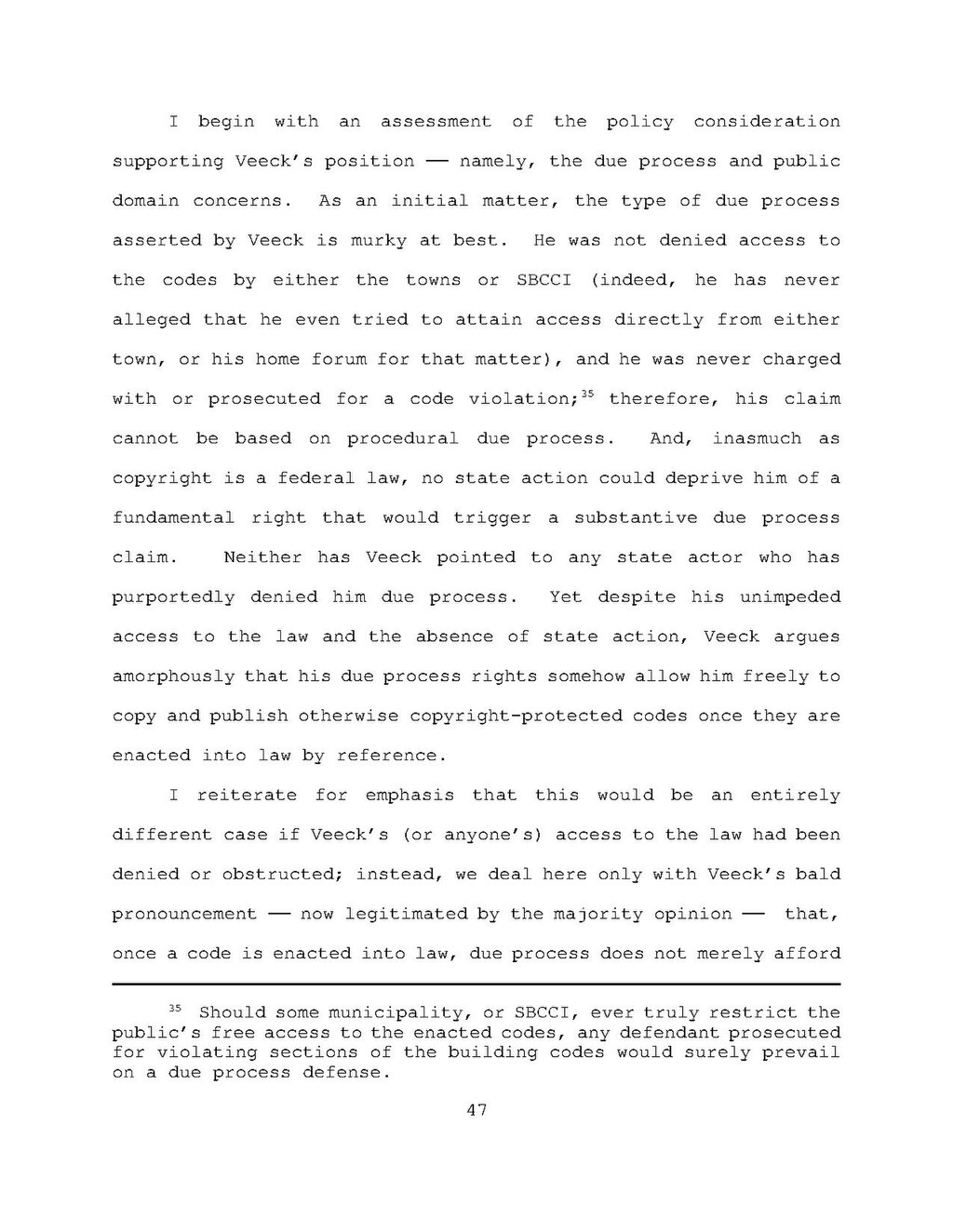I begin with an assessment of the policy consideration supporting Veeck's position—namely, the due process and public domain concerns. As an initial matter, the type of due process asserted by Veeck is murky at best. He was not denied access to the codes by either the towns or SBCCI (indeed, he has never alleged that he even tried to attain access directly from either town, or his home forum for that matter), and he was never charged with or prosecuted for a code violation;[1] therefore, his claim cannot be based on procedural due process. And, inasmuch as copyright is a federal law, no state action could deprive him of a fundamental right that would trigger a substantive due process claim. Neither has Veeck pointed to any state actor who has Yet despite his unimpeded purportedly denied him due process.access to the law and the absence of state action, Veeck argues amorphously that his due process rights somehow allow him freely to copy and publish otherwise copyright-protected codes once they are enacted into law by reference.
I reiterate for emphasis that this would be an entirely different case if Veeck's (or anyone's) access to the law had been denied or obstructed; instead, we deal here only with Veeck's bald pronouncement—now legitimated by the majority opinion—that, once a code is enacted into law, due process does not merely afford
- ↑ Should some municipality, or SBCCI, ever truly restrict the public's free access to the enacted codes, any defendant prosecuted for violating sections of the building codes would surely prevail on a due process defense.
47
